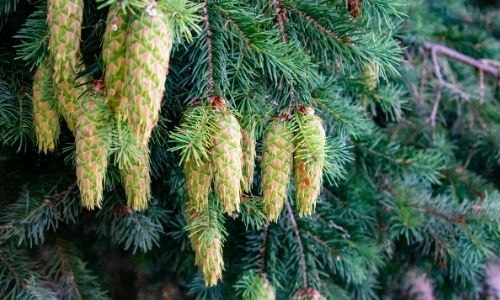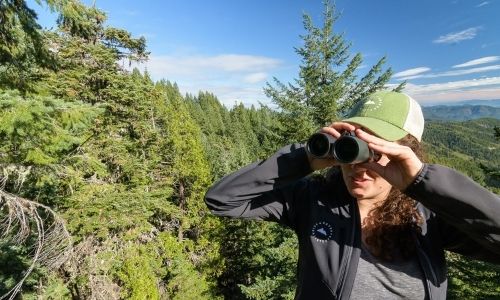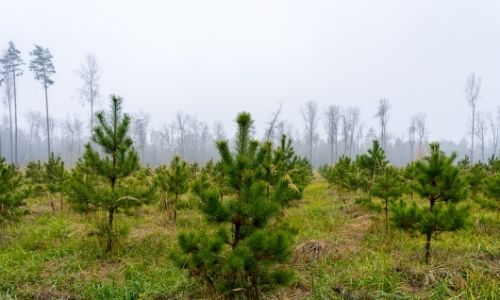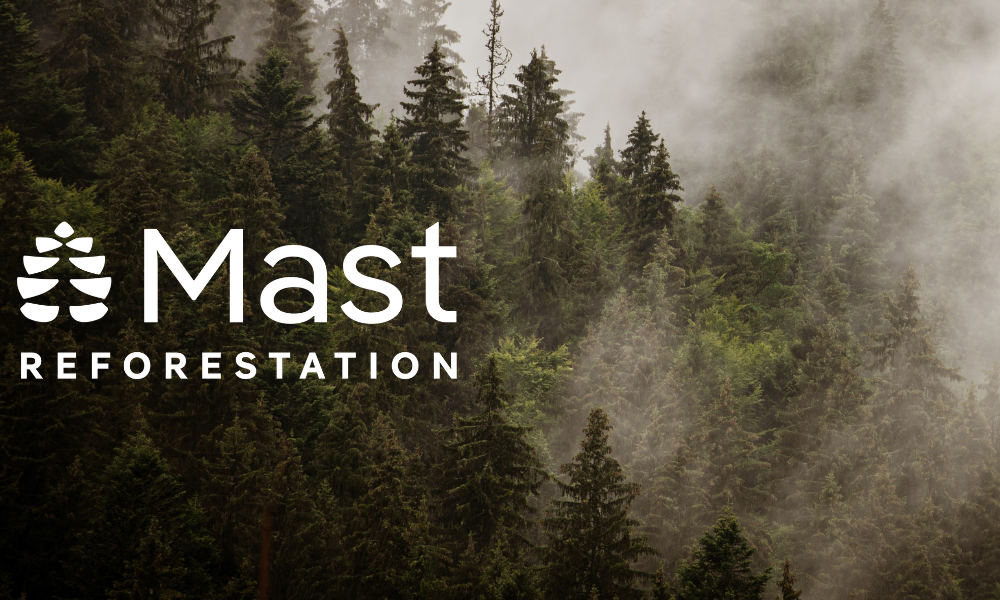REFORESTATION: WESTERN U.S.
Forest regeneration is declining under pressure from climate change, insect infestations, drought, and other human-caused or influenced disturbances. Science-informed reforestation boosts forest resilience and preserves ecosystems. What reforestation experts and scientists need are tree seeds.
The Reforestation: Western U.S. project sends volunteers into National Forest lands to look for and take photos of “cone crops” or large clusters of closed, female cones in a stand. These cones contain seeds that can be sustainably collected and stored for future restoration needs.
Since 2023, volunteers for the Reforestation: Western U.S. project have scouted for conifer cones in California and Western Montana.
Data That Drives Change
Up to 148 million acres of land in the U.S. could benefit from reforestation. However, the U.S. Forest Service is currently only able to reforest around 20% of National Forest lands that need it. This gap is widening as more forests endure wildfires, drought, disease, and insect invasion caused or influenced by human activities and climate change. Availability and access to native seeds limit the pace of reforestation.
In conifer species, like pine and fir trees, masting is the intermittent production of large numbers of cones, which contain the seeds. These synchronized events are likely driven by weather and other factors during seed development and are difficult to predict. Surveys of visible cone crops in the forest, conducted by trained volunteers, can help meet the demand for seeds and seedlings for reforestation efforts.



Our Partner

Mast Reforestation is a Seattle-based company contracted by government, Indigenous, and private landowners or managers to collect seeds, check seed quality, grow seedlings, and replant trees. The company aims to build an accessible seedbank for the conifer forests of the Western U.S. suited for the anticipated seed migration needs of our changing climate.
In the past two years, Mast Reforestation has collected almost 20,000 bushels of cones and aims to scale those efforts. They need targeted cone collection driven by on-the-ground data about where cones are being produced.
Data Collection Effort
Explore the map to the below to see data that have been collected by our amazing adventure volunteers! The white shading indicates the extent of the current project range. Blue markers represent locations of past cone scouting trips.
